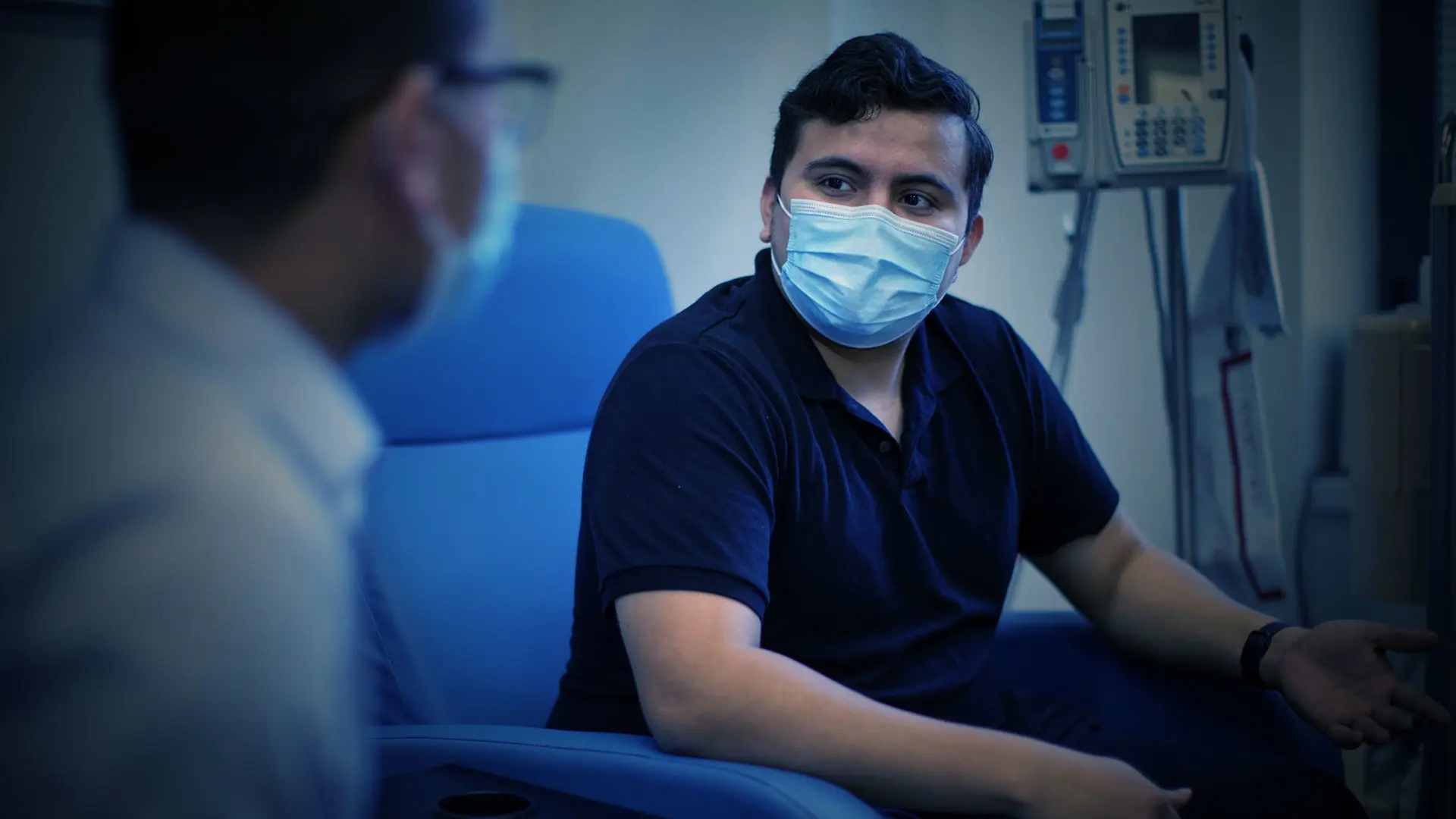A 26-year-old man hospitalized for acute psychosis was found 11 days later to have a cerebral venous sinus thrombosis (CVST)—a rare form of stroke—that challenged clinicians to pinpoint the actual source of his psychiatric symptoms and determine the most effective course of medication. His eventual return to normalcy after the discontinuation of all medicines holds an instructive lesson for professionals about the treatment of a condition that crosses the line between psychological and neurological.
In October 2020, the young man, who had no prior psychiatric history, was brought to The Mount Sinai Hospital by his family after experiencing auditory hallucinations, along with paranoid and suicidal ideation over several days. While still in the hospital a
week-and-a-half later, he developed a severe headache with vomiting. An MRI
showed thrombosis of two sinuses on the right side of his brain, for which
anticoagulation therapy was started. He was also given the psychiatric medicines aripiprazole, fluoxetine, mirtazapine, and lithium at therapeutic doses.
After a slight improvement five weeks into his hospitalization, he was discharged to a step-down program at Mount Sinai known as the Partial Hospital Program with daily group therapy. His medication regimen was also changed: lithium and mirtazapine were discontinued, and aripiprazole was cross-titrated to ziprasidone. The patient continued to
hear disturbing voices throughout the day, however, leading to demoralization. His mother told doctors that he would stare into space and constantly appear lethargic.
She was upset that he was still symptomatic after an aggressive course of treatment.
The patient continued to hear disturbing voices throughout the day
In January 2021, Susan Kahane-Pierre, MD, Assistant Professor of Psychiatry at the Icahn School of Medicine at Mount Sinai, became the patient’s psychiatrist after he completed the partial hospitalization program. Concerned about his persistent symptoms, she switched him from ziprasidone to the antipsychotic haloperidol, and within a day the young man’s auditory hallucinations had ceased.
His slowness did not improve, however, even with a subsequent reduction of haloperidol and fluoxetine. At that point, the patient’s mother—who was in constant touch with the doctors—requested that both medicines be discontinued. Dr. Kahane-Pierre discontinued them with close monitoring. The patient’s reactivity, gait, hygiene, and vision immediately normalized, and his family reported a return to “his usual outgoing self” and general state of well-being. Since then, the patient has continued a return to good health with no psychiatric medicines and a resolution of the thrombosis with no signs of permanent damage, as documented by imaging.
With his health and confidence on the upswing, the patient started a full-time job. Auditory and tactile hallucinations did return, however, and have persisted without other signs or symptoms of psychosis. He feels much more able to cope with them and more able to function than last winter and has been able to maintain full-time work. The team referred him to the National Alliance of Mental Illness’s (NAMI) hearing voices group and has planned further screening tests for possible medical causes of atypical psychosis.
“At this point, it does not seem likely that the CVST caused the psychosis, as there were no signs of parenchymal damage and other neurological deficits from the CVST, and as hallucinations have persisted months after the thrombosis cleared,” says Dr. Kahane-Pierre. “The psychosis appears to be an atypical form of psychosis characterized solely by auditory and tactile hallucinations. While antipsychotic medication is extremely helpful and life-changing for many patients, this case serves as a reminder of how some cases of first episode psychosis can be managed with timely discontinuation of antipsychotic medication and with ongoing psychiatric monitoring and support.”
With his health on the upswing the patient started a full-time job
Featured

Susan Kahane-Pierre, MD
Assistant Professor of Psychiatry
